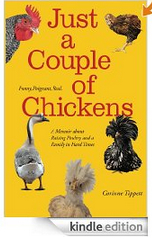(this post is a re-write re-post from 2011…)
As I near the end of writing my manuscript, I realize that the time has come to polish up the grammer, usage, punctuation,
and so I pull out my mammothly heavy copy of The Chicago Manual of Style.
Perhaps, you are thinking, I should have that book out all the time – before I near the end of my manuscript.
Well, I am going to ignore that kind of thinking and move forward.
I can’t pretend that I like The Chicago Manual of Style. I’ve spent too many hours trying to follow all the freakin’ rules and regulations.
Rules like how percentage has to be spelled out if it refers to human beings, but can be a symbol if it refers to anything else unless it is at the beginning of a sentence and depending how big of a number it is referring to.
This is the kind of rule that seems to love itself too much.

This is how I feel about the Chicago Manual of Style, but I use it… and use it… and use it some more.
To be a rule simply to exist as a rule and not to help mankind in general.
Stop signs, good rule.
Percent rule, not so much.
The manualfesto is produced by the University of Chicago Press – who is actually a publisher.
They have a section of their website with manuscript preparation guidelines that are a handy basic starting point for formatting a manuscript, even if it isn’t going to be submitted to them.
And I wondered why the University of Chicago got to determine the final word on usage of the English Language… wikilore says it is because they did it first, and they did it most, and they’ve continued to do it.
It started in 1906 with the first edition and is now in a 16th edition and is considered a guide for the proper use of everything in American English.
If I sound a little negative, it’s only because I don’t write right and I have to spend many many hours creeping through the Chicago Manual of Style to put out a decent manuscript.
Their rules of English usage are not obvious to me despite my fluency in the language.
It is also because I decided not to sign up online because if I bought the durn book, then I’d have it and not have to pay again every year. How often would they put out a new edition? I’d be set for decades.
The very next year, they put out the new edition. All newest editions are automatically accessible in the online subscription, which is also, naturally, searchable online.
If I had the online version, I could be searching the proper usage of the word “Dammit” right now.
« 5 Tips For Including Images And Captions In Your Self-Published Book One Of The Fabulous Benefits Of The Urban Chicken Movement »


